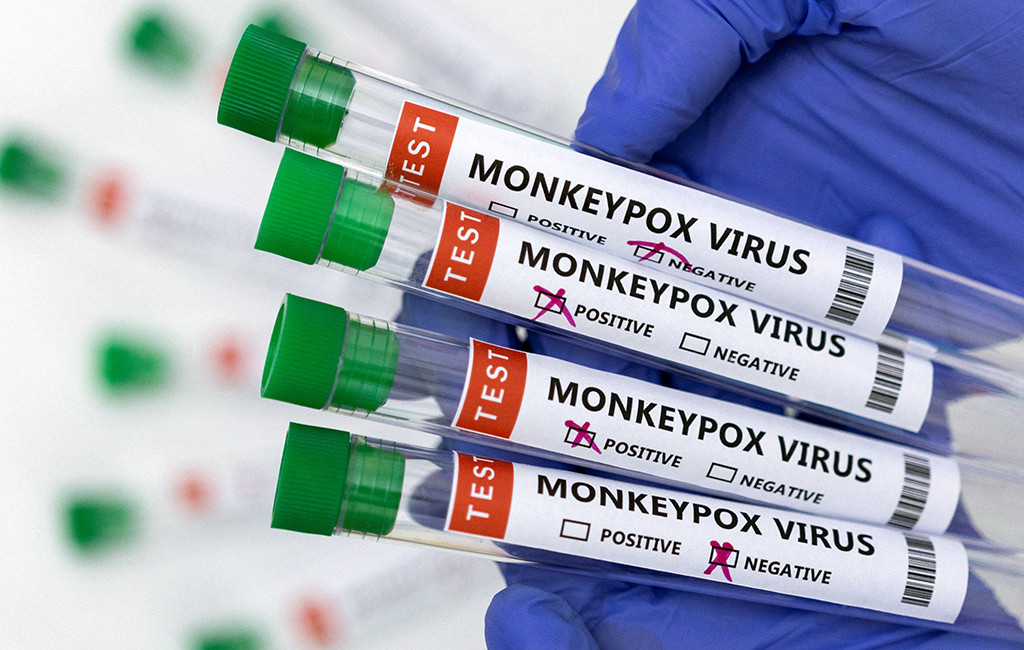WASHINGTON: US has reported the first cases of monkeypox as two cases of the rare viral disease have been identified in children, media reports said citing the US Centers for Disease Control and Prevention said Friday.
According to CDC, the cases are not related and could be cases of local transmission. One case is a toddler who is a resident of California while the other is an infant who is not a US resident. After the identification of the cases, the public health officials are investigating them to see how the infection occurred. Though the infected children have symptoms yet both are in good health condition, reported CNN.
Necessary treatment is being provided to the children with an antiviral medication named tecovirimat or TPOXX. These medications are recommended by CDC for children under the age of 8.
It is worthy to note that children are considered to be at a higher risk of infection.
The CDC says the Jynneos monkeypox vaccine is being made available for children through special expanded use protocols. The agency has also developed new guidance for health care providers about identifying, treating and preventing monkeypox in children and teens.
Dr. Jennifer McQuiston, deputy director of the CDC’s Division of High Consequence Pathogens and Pathology, said Friday that the cases in children were not surprising and that the US should be ready to respond to more.
“The social networks that we have as humans mean that we have contact with a lot of different people. And while this outbreak is spreading in a particular social network right now, I think we’ve messaged from the start that there could be cases that occur outside those networks and that we need to be vigilant for it and ready to respond and message about it,” she said.
“I know that in Europe and other places where this outbreak is also expanding, they have reported cases in children, in women. And I think the same thing is happening and expected to happen here in the United States,” she said.
“There is no evidence to date that we’re seeing this virus spread outside of those populations to any degree,” McQuiston said.
The US government has shipped 300,000 monkeypox vaccines to US states and territories as of Friday afternoon. “That means hundreds of thousands of Americans are going to be getting vaccinated in a matter of days or weeks,” Dr. Ashish Jha, the White House Covid-19 response coordinator, said Friday. “Jurisdictions, states territories, cities are getting their vaccines typically about 30 hours after ordering them,” as per the media portal.
Meanwhile, the World Health Organization (WHO) has reconvened the Monkeypox Emergency Committee to assess the public health implications of the evolving multi-country outbreak.
This comes as global cases passed 14,000, with six countries reporting their first cases last week. The committee first met last month but decided against declaring it a public health emergency of international concern.
On Thursday, WHO chief Tedros Adhanom Ghebreyesus acknowledged his “acute” awareness that any decision regarding the possible determination involves “the consideration of many factors, with the ultimate goal of protecting public health”.
The committee has already helped “delineate the dynamics of this outbreak,” he said in his opening remarks to committee members and advisors.
“As the outbreak develops, it’s important to assess the effectiveness of public health interventions in different settings, to better understand what works, and what doesn’t”.
Monkeypox, a rare viral disease, occurs primarily in tropical rainforest areas of Central and West Africa, though it has been exported to other regions. This year, more than 14,000 cases have been reported across 71 Member States, from all six WHO regions.
Tedros revealed that six countries reported their first cases last week and that the vast majority continue to be among men who have sex with men. “This transmission pattern represents both an opportunity to implement targeted public health interventions, and a challenge because in some countries, the communities affected face life-threatening discrimination,” he said.
He warned of “a very real concern” that men who have sex with men could be “stigmatized or blamed…making the outbreak much harder to track, and to stop”.
“As many of you know from your deep engagement with these communities, there is a very real concern that men who have sex with men could be stigmatized or blamed for the outbreak, making the outbreak much harder to track, and to stop,” the WHO chief said.
He further affirmed that one of the most powerful tools against monkeypox is information,
“The more information people at risk of Monkeypox have, the more they are able to protect themselves,” Tedros said. “Unfortunately, the information shared with WHO by countries in West and Central Africa is still very scant”.
The inability to characterize the epidemiological situation in those regions represents a “substantial challenge” to designing interventions that can control the historically neglected disease.
The UN health agency is working closely with affected communities in all its regions and as the outbreak evolves, has called for increased, “targeted and focused” access to all countermeasures for the most affected populations. (ANI)






